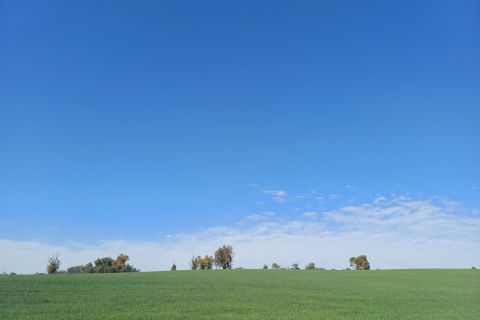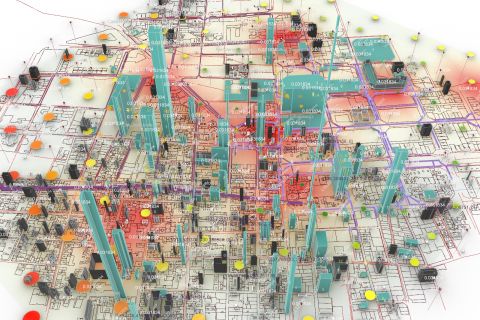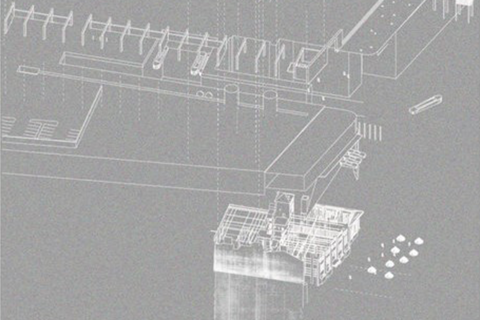Bezalel Institute for Spatial Studies - BISS
מכון בצלאל לחקר המרחב
معهد بتسلئيل للدراسات المكانية
The Academic Conservation Center, Bezalel will engage in research, teaching, documentation and training in the field of tangible and intangible cultural heritage and will serve as a national and urban center for learning and enriching the field of conservation in all its aspects. The center, which will be established with the support of the Heritage Division of the Jerusalem and Heritage Ministry, will be managed by Bezalel and will operate in broad and multi-sector cooperation with leading bodies and organizations in the field of heritage conservation, including the Heritage Division of the Jerusalem and Heritage Ministry, the Israel Museum, the Jerusalem Municipality, the Antiquities Authority, the Nature and Parks Authority and the Council for Conservation of Heritage Sites in Israel. The center will combine academic theory with multidisciplinary practical conservation, will provide to the existing lack of high-level academic training, practical training in conservation crafts and documentation, and will award certificates to practitioners in the broad field of cultural heritage ranging from the preservation of items to the preservation of sites, buildings, compounds, urban areas and historic urban landscapes.
The SOFT laboratory is engaged in research and development of soft architecture in cooperation and support of commercial construction companies and NPO’s. The laboratory consists of two leading researchers as well as research assistants. The laboratory’s main field of research is soft construction, with the aim to develop work methodologies around soft and light elements and architectural components and out of a desire to ask - what is soft architecture? How is it built? To what extent can it bear changes? How flexible is it? What is the potential of temporary construction? And what are the ecological potentials inherent in changing the existing structural perceptions?
HERILAND is a pan-European research and training network on cultural heritage in relation to Spatial Planning and Design. It is funded by the European Union’s Horizon 2020 research and innovation programme under the Marie Sklodowska-Curie grant agreement No 813883. Bezalel is the lead partner on Work Package 4 – Shifting Demographic and Contested Identities, and hosts three PhD students working on several projects, including “Datascape Methods of Planning Professionals” and “Adaptation of Urban Heritage in a Multicultural Society.
HERITOPOLIS is a global comparative study, aiming to lead to an international conference, which addresses the role of cultural and natural heritages in planning, designing and managing the 21st century metropolis. The study brings together through surveys and workshops leaders and visionaries, UN partners, including policy makers, urban planning agencies, experts, business leaders, academic institutions, researchers and civil society. It provides a platform to stimulate exchanges and articulate innovative approaches to identifying, producing and promoting the role of heritage in the 21st century metropolis, as a tool to promote sustainable development goals. This will provide, inter alia, critical inputs for the reporting and monitoring of the UNESCO 2011 Recommendation on the Historic Urban Landscape, the 2030 Agenda for Sustainable Development (SDG) and the New Urban Agenda.
EDICULA offers an innovative approach to the conservation of built heritage, which seeks to promote the protection of monuments as part of the concept of heritage conservation, protection of cultural assets and sustainable development. The project promotes multidisciplinary and multisectoral cooperation and combines practical research and theoretical study. The international cooperation is based on a variety of universal educational tools and actions that include skills development, social inclusion, critical thinking in the field of conservation and the involvement of communities and youth, using advanced technologies and practical experience with the aim of creating innovative learning and training in the digital age. At the heart of the project is the site of the Church of the Holy Sepulcher in Jerusalem and in its center - the Aedicula (the structure of Jesus' tomb) from which the learning and practical experience in conservation and development of innovative tools will develop. The project is financed by the Erasmus+ program of the European Commission and includes 6 partners from Israel and across Europe. Visit the website
CONSIDER “Sustainable Management of Industrial Heritage as a Resource forUrban Development” - is a research project funded by EU Horizon focused on Industrial Heritage and rethinking how society engages with industry and post-industrial sites. The main purpose is to develop a sustainable management model (SMM) for industrial heritage sites (IHS) for the benefit of the local communities as a resource for strengthening collective identities, improving the urban landscape, promoting eco-friendly solutions, and contributing to the urban economy and a sustainable future of the city. CONSIDER is working on several deliverables over the coming years to rethink the way industrial heritage impacts sustainable thinking in Israel.
Vegetation, Culture and Cultivation: Crop Wild Relatives (CWR) in Israel aims is to expand the means for safeguarding the Crop Wild Relatives of cultivated plants in situ. Funded by Yad Hanadiv, the project includes an inter-disciplinary team of professionals from the Israel Nature and Parks Authority, the Israel Antiquities Authority, the Botanical Gardens at the Hebrew University, Jerusalem, Deshe Institute at Tel Aviv University and Bar-Ilan University, coordinated by Bezalel and the Israel Gene Bank. Its purposes are to provide information for advancing food security and to identify areas critical to conserving Crop Wild Relatives’ species in Israel, considered along with archaeobotanic evidence of cultivation in the area, linking culture and nature. This data will be compiled as GIS layers for use by planners and decision-makers to provide statutory protection of CWR “hotspots.” Guidance and planning documents for the management and conservation of CWR in situ will be developed applying frameworks such as national parks or nature reserves, cultural landscapes or biospheres and agricultural heritage systems. The global significance of these sites may also serve as the basis for preparing documents to nominate a property, or properties, for World Heritage inscription.
Jerusalem Architectural Archives is a database containing seven collections dealing with planning, architecture, design and conservation in the modern era. Its purpose is to digitize urban plans, architectural schemes, maps, photographs and written documents, all documenting Jerusalem's recent past, and make them accessible for planners, architects, conservation practitioners and the public, for improving the city's planning and conservation and enhancing its research. The creation of the database for professional purposes is based on the need expressed in the fourth schedule (1991) to the Planning and Building Law (1965) to base policies of conservation and inscription of buildings as 'worthy of conservation' on information and documentation. It was developed by Bezalel and funded by the Jerusalem Development Authority with support from Jerusalem Municipality, the National Library of Israel and the Ministry of Heritage.
Urbanism in the expanded field is an ongoing project of developing a local body of knowledge on urbanism, learning from the Israeli context. Urbanism is challenged today more than ever by a global condition of an unsettling instability, first and foremost manifested by climate change and over the last three years highlighted by the global outbreak of the COVID-19 pandemic, political unrest, and global migrations. The project, which consists of students seminars, growing collection of writings and an academic conference, proposes to expand the field of urbanism not only beyond the existing fields of expertise but also beyond the commonly accepted territory of the city and familiar definitions of what is called “urban”. It raises the question whether urbanism can exist in open landscapes, low densities, informal configurations, temporary gatherings, dispersed networks and infrastructural endeavors. Cities and urban conditions in Israel and their surroundings are the reference point for addressing these questions, both as extreme examples of expanding the field, but also perhaps as a precursor for future extremities to be expected in other parts of the world. We propose to consider this fleeting moment in time and space as a case study and platform for understanding larger trends around urbanism, densification, ecosystems, and the infrastructures that connect them. We seek an urbanism that is resilient, responsive, porous and permeable - one that can invert the late-capitalist tendencies of perpetual into an ever-expanding conception of the “urban” and its mechanisms of sustainable growth.
Between the Drops promotes a rethinking of the design of family health clinics - "Tipat Halav” and their surroundings throughout the country, as part of a broad move by the Ministry of Health to develop them. The purpose of the project, financed by the Bernard Van Leer Foundation, is to encourage brainstorming among the community of designers and architects in Israel, to develop a rich planning program and a design guide of planning principles for Tipat Halav so that they are adapted to the perspective and needs of the early age (birth to 6 years) and their caregivers, in accordance with the Urban95 approach - the city from the perspective of children. The results of the project offer strategies for the redesign of "Tipat Halav" clinics employing planning and design tools ranging from the urban context to the building, its interior and details – to serve as an active environment for toddlers, enrich their interaction with their caregivers, encourage their health and development, and strengthen the clinic as a welcoming focal point to its urban and local surrounding.
The Decolonizing the Campus research project focuses especially on the Obafemi Awolowo University founded in 1961 by the new State of Nigeria as a reaction to British education facilities realized under colonial rule. The Obafemi Awolowo University was the first post-independence campus in Nigeria to possess an architecture faculty. Prof. Architect Zvi Efrat from Bezalel Academy in Jerusalem has been commissioned to produce a short film and research on site about the University of Ife campus (Obafemi Awolowo University) as the campus was designed by Bauhaus graduate Arieh Sharon in collaboration with Nigerian architects from the 1960s onwards. The research asks in which way the newly built campus in the ancient town Ife-Ile in the Osun State in Nigeria differed from colonial campus architecture built by British architects Drew and Fry. How is it reflected in the changes that took place after Nigeria’s independence in art, design, architecture and education? What can we still learn and take from these radical pedagogical revisions for today and Nigeria’s architecture of emancipation? The project is based on an academic collaboration between the Department of Architecture at the Obafemi Awolowo University in Nigeria, The School of Architecture at the Bezalel Academy of Arts and Design in Jerusalem and Bauhaus Universitat in Weimar.



